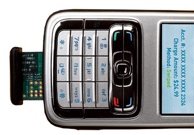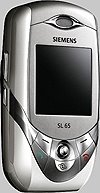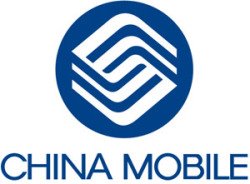
Nokia is now planning to name their new phone models rather than using numbers. They haven't released any names as yet. According to Nokia's head of marketing Keith Pardy, in the future customers "are going to start to see names that carry a meaning and are important to consumers."
I am not sure this will be a good idea in non-English speaking countries if the name is too difficult to pronounce, but we'll wait and see.
Friday, September 08, 2006
Nokia Learning the Alphabet
Posted by
bulletproof
0
comments
![]()
Labels: handset, mobile, news, Nokia, phone models
Tuesday, August 29, 2006
A dozen interesting facts about Nokia
- Unlike other modern day handsets, Nokia phones do not automatically start the call timer when the call is connected, but start it when the call is initiated. (Except for Series 60 based handsets like the Nokia 6600)
- The name of the town of Nokia originated from the river which flowed through the town. The river itself, Nokianvirta, was named after the old Finnish word originally meaning sable, later pine marten. A species of this small, black-furred predatory animal was once found in the region, but it is now extinct.
- The native Finnish pronunciation of “Nokia” is [’no.ki.a], i.e. stress on the first syllable and all vowels short. English speakers often pronounce the name approximately [nou.ki.ə] (adapting the Finnish short ‘o’ [o] to the English “long O” [əυ]) or [nak’kii.ə] (postponing stress and replacing the short ‘i’ [i] with a “tense I” [ii]).
- The “Special” tone available to users of Nokia phones when receiving SMS (text messages) is actually Morse code for “SMS”. Similarly, the “Ascending” SMS tone is Morse code for “Connecting People,” Nokia’s slogan. The “Standard” SMS tone is Morse code for “M” (Message).
- The ringtone “Nokia tune” is actually based on a 19th century guitar work named “Gran Vals” by Spanish musician Francisco Tárrega. The Nokia Tune was originally named “Grande Valse” on Nokia phones but was changed to “Nokia Tune” around 1998 when it became so well known that people referred to it as the “Nokia Tune.”
- Nokia is sometimes called aikon (Nokia backwards) by non-Nokia mobile phone users and by mobile software developers, because “aikon” is used in various SDK software packages, including Nokia’s own Symbian S60 SDK.
- Nokia sponsored several pan-European Alternate Reality Games from 1999 to 2005, under the name Nokia Game. These were used to promote their latest phones, as well as introducing the ARG format to Europe.
- Nokia was listed as the 20th most admirable company worldwide in Fortune’s list of 2006 (1st in network communications, 4th non-US company).[6]
- Nokia is currently the world’s largest digital camera manufacturer, as the sales of its camera-equipped mobile phones have exceeded those of any conventional camera manufacturer.
- In the mobile phone market, Nokia is in direct competition with Motorola, Sony Ericsson, Samsung Electronics, LG, Philips, Kyocera, SAGEM, among others.
- In Asia, the digit 4 never appears in any handset model number, because 4 is considered unlucky in many parts of Southeast/East Asia.
- The Nokia corporate font (typeface) is the AgfaMonotype Nokia Sans font, originally designed by Eric Spiekermann. Previously in advertising and in its mobile phone User’s Guides Nokia mostly used the Agfa Rotis Sans font.
Posted by
bulletproof
0
comments
![]()
Labels: facts, interesting, mobile, news, Nokia
Wednesday, August 23, 2006
Motion Sensor + Screen Saver = Battery Level Meter

The N702is 3G phone by NTT DoCoMo in Japan has a built in motion sensor and when the screen saver is activated, the screen acts exactly like a glass of water. The "water" level moves when you move the phone around with the information it gets from the motion sensors. The water level reflects your battery status, the lower it gets, the less power you have and therefore needs some juice.
Posted by
bulletproof
1 comments
![]()
Labels: 3G, Battery Level, battery status, handset, mobile, N702, news, NTT DoCoMo, water
Monday, August 14, 2006
China Mobile the new Title Holder
Posted by
bulletproof
0
comments
![]()
Labels: carriers, China Mobile, mobile, news, Vodafone
Friday, August 11, 2006
Opera Mini™ goes Platinum

The mini browser has been used to visit one million pages( 1,000,000 ) according to a press release by Opera.
If you don't have it installed on your phone or PDA you can download it here.
Posted by
bulletproof
0
comments
![]()
Labels: Browser, download, free, Google, mobile, news, Opera, Opera Mini 2.0, PDA
Wednesday, August 09, 2006
Sprint Leads the way - 4G with WiMAX
 Sprint has finally decided to go with WiMAX after months of testing different technologies and since the have joined forces with Nextel they have all this 2.5G infrastucture laying arourd. We'll see if Qualcomm can keep up the pace. Hopefully they can be competitive since Sprint is working with Motorola, Samsung Electronics and Intel Corp. to help develop the underlying network. Sprint is expecting to complete the infrastucture by 2008 with a budget of $1 -$4 billion
Sprint has finally decided to go with WiMAX after months of testing different technologies and since the have joined forces with Nextel they have all this 2.5G infrastucture laying arourd. We'll see if Qualcomm can keep up the pace. Hopefully they can be competitive since Sprint is working with Motorola, Samsung Electronics and Intel Corp. to help develop the underlying network. Sprint is expecting to complete the infrastucture by 2008 with a budget of $1 -$4 billion
Tuesday, August 01, 2006
Mobile Phone Money

Near Field Communication (NFC) is a wireless standard which will enable cell phone waving payments at cash registers everywhere.
Unlike radio-frequency identification (RFID) and other existing contactless payment systems, NFC chips allow two-way information exchange by rolling an RF transmitter and reader into one five-millimeter package. That means the chip can also take in data, such as a receipt zapped to it by a cash register or a bus schedule from a tag embedded in a bus-stop sign.
The technology is expected to start hitting stores next spring both embedded in cell phones as well as in miniSD-card-size adapters from SanDisk which will be able to add NFC to any smartphone with a Symbian operating system.
Full details at Popular Science.
Posted by
bulletproof
0
comments
![]()
Labels: development, mobile, mobile billing, Near Field Communication, news, NFC, Symbian
Mobile Use in Muslim Countries up 70%

Mobile usage in Arab nations jumped by 70% in 2005, according to Dubai-based Madar Research. Madar puts the rise down to increased competition and the fact that mobile tariffs are becoming more attractive and competitive with landline calling rates.
Current statistics put penetration in these countries at 28%, which is respectable when considering the average per capita income and geography of the region. North Africa grew the fastest within the collection of Muslim countries, with penetration rising by 83% year-on-year. Morocco now has 10 mobile lines for every one landline, according to Madar.
Posted by
bulletproof
0
comments
![]()
Sunday, July 30, 2006
Microsoft demos hybrid computer/phone
The line of distinction between a full fledged computer and mobile phone has been blurred with the advent of smartphones and Microsoft is doings its best to continue the trend. The company demoed a prototype product that combines Windows CE and a phone. The device is able to hook into a keyboard and TV to perform PC-like tasks.
Chief Research and Strategy Officer Craig Mundie thinks this type of device could bring computing to the masses:
"Could this be your first computer? And if it was, what could you do with it?" Mundie asked. He demonstrated word processing, multimedia playback and Web browsing using scaled-down versions of Internet Explorer, Word and Windows Media Player. "For at least simplified applications, it's harder to distinguish this from a computer," he said.
Microsoft has been facing pressure to develop a low-cost PC as emerging markets begin to come online. Nicholas Negroponte founded the One Laptop per Child organization to bring computers to emerging markets, but to cut costs the project is not using any Microsoft software (opting instead for open source apps).
Posted by
bulletproof
0
comments
![]()
Labels: Microsoft, mobile, news, prototype, smartphone
Friday, July 28, 2006
Gamevil Moves To USA

Gamevil has opened a US subsidiary in Los Angeles. These are the guys who developed Skipping Stone, which is published by iPlay and has won several awards. From the press release:
“The company’s portfolio emphasizes easily accessible casual and networked games, all of which are based on bleeding-edge technologies. One such technology is GAMEVIL LIVE, a scalable, user-friendly network gaming service that will bridge new gamers to existing carrier communities…Along with great games and novel technologies, GAMEVIL USA will also bring GAMEVIL’s winning business strategy to the United States. GAMEVIL is a marketing leader in Korea, where it has pioneered direct-to-consumer and community-based promotions.”
Gamevil plans to use the same marketing techniques in the US, which should be a good thing — many people think that distribution is one of the biggest problems with the US (and most of the world’s) mobile gaming market.
Posted by
bulletproof
0
comments
![]()
Labels: game developers, game utilities, games, Gamevil, mobile, mobile commerce, news, Skipping Stone
More Cash for Digital Chocolate

Mobile game developer Digital Chocolate, headed up by Trip Hawkins, has secured another round of funding, obtaining an additional US$22.5 million from a group of investors led by Bridgescale Partners. This round, the company's third, brings the total VC investment in the EA founder's new company to just under US$45 million.
Posted by
bulletproof
0
comments
![]()
Labels: Digital Chocolate, EA, mobile, news
Thursday, July 27, 2006
Mobile industry booming in Japan
According to an article in mobileindustry.biz (this article) mobile in Japan is booming !!
“According to the report, partially translated by GameSpot, figures released by the Ministry of Internal Affairs of Communication state that the mobile industry has grown to 722.4 billion Yen (4.9 billion Euro) over the past 12 months - a rise of 39 per cent.
The increase was boosted by mobile content sales, which rose by 21 per cent to reach 315 billion Yen (2.1 billion Euro). Sales of ringtones accounted for 161 billion Yen (1.09 billion Euro).”
Posted by
bulletproof
0
comments
![]()
Labels: games, mobile, mobile commerce, news
All for just US$300k

The release of new designer handsets continues apace, with the announcement of the Black Diamond smartphone. The handset, from Swiss manufacturer VIPN is a limited edition run of 5 devices designed by Jaren Goh. The handset will cost US$300,000. The phone comes with the usual array of features, including a 4 megapixel camera, and runs Windows Mobile 5, a 2Gb SD card, support for SIP and WiFi, and a touch sensitive keypad, and will be delivered to the five purchasers in early 2007.
Posted by
bulletproof
0
comments
![]()
Labels: mobile, news, SIP, smartphone, touch-sensitive, VIPN, WiFi, Windows Mobile
Wednesday, July 26, 2006
Cell Phones With Hard Drives Could Oust MP3 Player Sales
In a study released on thursday, ABI Research claims that cell phones with hard disks could severely hurt MP3 player sales. As the memory capacity of cell phones (in storage of MP3 files and songs) increases, the demand for MP3 players will decrease.
An example of a phone with hard drive is the Samsung SPH-V5400 that comes with a 1.5GB hard drive. Nokia N91 is expected to be released with a hard drive capacity of 4GB while Samsung SGH-i310 has 8GB capacity.
Alan Varghese, ABI Research's principal analyst quotes, "As the cellular handset becomes the one device that the world carries, the standalone MP3 player may well be left behind. What's important to many users is having one device that handles mobile music as well as the other functions-phone calls, digital photography, email, web browsing-now performed by cell phones."
At the moment, the 8 or 4GB storage capacity we see in the above cell phone models does not pose a big threat to MP3 players because they come with capacities ranging from 30-60GB. However, Varghese believes there will come a point when consumers do not care whether the phone can store 2000 songs or 5000 songs. This point is called the margin of diminishing returns.
What's more, most people carry around their cell phone, and not their MP3 player. So why not have just one device (the cell phone), equipped with an MP3 player, rather than carrying around a standalone MP3 player?
Posted by
bulletproof
0
comments
![]()
Labels: mobile, MP3, MP3 player, N91, news, SGH-i310, SPH-V5400
Monday, July 24, 2006
Rejection without Confrontation

I don’t think anyone could have predicted the massive scale of the ringtone business, even though it seems stalled now, but here’s another completely unlikely success story. The Rejection Hotline is a service for people being pestered for their phone numbers on the dating scene. You simply give out the hotline number and when they call….they’re let down gently.
So, a nice little idea methinks. But then check out the numbers involved. To date, it’s had over 77 million calls and is up to 2 million calls a month.
Moderati, a leading US ringtone provider, has launched a spin off product, the Rejection Ringtone. So just in case you get so flustered and give away your real number, so can still tell unwanted callers to take a hike.
Posted by
bulletproof
0
comments
![]()
Labels: mobile, news, Rejection Hotline, ringtone, service
SMS warning for the Lebanese

Several news reports have mentioned today that the Israeli military is alerting residents in southern Lebanon to impending strikes by, among other methods, SMS. Besides dropping leaflets and utlizing local radio, the IDF is contacting locals in the Tyre area by mass SMS telling them to leave the area. According to Textually, Israeli start-up Cellact has been offering the system in the region as a means of alerting residents to emergency events. This isn't the only use of SMS in the conflict so far, however. Swedish officials have used SMS to round up evacuees in Lebanon and tell them where to gather, as have the French.
Posted by
bulletproof
0
comments
![]()
Labels: evactuation, mobile, news, service, SMS alert
Sunday, July 23, 2006
Get an SMS from your washing machine

The Internet Home Alliance, an organization comprised of high tech companies such as HP and Microsoft as well as P&G and Whirlpool, have begun an eight-week pilot to test the concept of an intelligent washing machine. The mobile angle? The machine is tied into a home network that can alert you via SMS, as well as messages on the TV, that your laundry is done. Thus spake the managers of Laundry Time:
"To be conducted in Atlanta homes between today and early September, Laundry Time is built around a connected laundry solution that links a washer and dryer to a home network and sends text messages about the laundry's progress to a computer, TV and/or cell phone. This revolutionary technology enables consumers to manage the laundry process from remote locations such as a grocery store or soccer game, freeing them up to go about their day rather than forcing them to stay home to manage the process.Isn't that what the buzzer is for?
'Generally, most people tend to 'batch' their laundry -- washing and drying at the same time -- and they stay home during the hours it takes to manage the laundry process,' said Carol Priefert, Senior Product Development Manager, Whirlpool Corporation. 'Whirlpool research shows that the average consumer "batches" about six and a half loads one day per week, while heavy users may "batch" as many as 15 loads. Laundry Time will test ways to make it easier for people to manage the process remotely or while doing other things around the home.'
Saturday, July 22, 2006
US MMS traffic surges 40% over last quarter
Mobile 365 is reporting that US based Multimedia Message Service (MMS) traffic has surged 40% in the second quarter of the year. MMS is most commonly called picture messaging by carriers, but other types of multimedia can be included. The US now leads the world in MMS traffic.
Total U.S. MMS Mobile Originated (MO) traffic for the second quarter was 52,071,114 MO messages; total traffic for the first quarter was 34,405,598 MO messages. MMS mobile content includes video, photos, audio, and rich text such as wallpaper, ringtones, games, and applications.
Mobile 365 handles messaging interoperability among carriers and currently processes over 2 billion messages per month.
Posted by
bulletproof
0
comments
![]()
Labels: carriers, MMS, mobile, multimedia, news
Students in Vietnam caught cheating using their mobiles phones

You've probably considered it, you may have even given it a whirl just to see if it'd fly; using technology to your advantage in testing situations is most often regarding as cheating, as was the case when proctors recently busted a ring of Vietnamese test-takers attempting to cheat on their college entrance exams. More than 20 hopeful students paid between $1,250 to $3,125USD to get wired up with wigs and shirts that would allow them to communicate questions and answers via mobile phones without being discovered. The potential gain was apparently worth the risk, especially since only 10 percent of applicants in Vietnam get accepted to universities.
Posted by
bulletproof
0
comments
![]()
Labels: cheating, mobile, news, university
Siemens SL-65 Interceptor - The Spy Phone

So the premise of spying on someone, whatever the reasons, is definitely not new to cellphones. The incessant paranoia keeps gadgets like these popping up every so often -- but the Siemens SL-65 takes high-end voyeurism to an even darker corner. As you'd probably imagine, you dial up the device's super-secret number to instantly surreptitious listen in on whatever's happening up to five meters away from the mic. For even more "proof" of an ongoing scandal, the phone will automatically send the caller an SMS whenever a call is made or received, so you can spend ever more time wondering who's calling at 1:00AM. Spyphones even goes so far as claiming no technician can ever identify its secretive nature (unless of course they read Engadget), but at €1,699.00 ($2,169.96 USD), the SL-65 is only slightly less expensive than a private investigator -- and we do stress slightly.
Posted by
bulletproof
0
comments
![]()
Labels: hidden, mobile, news, secret, security, Siemens, Siemens SL-65, spy phone



















